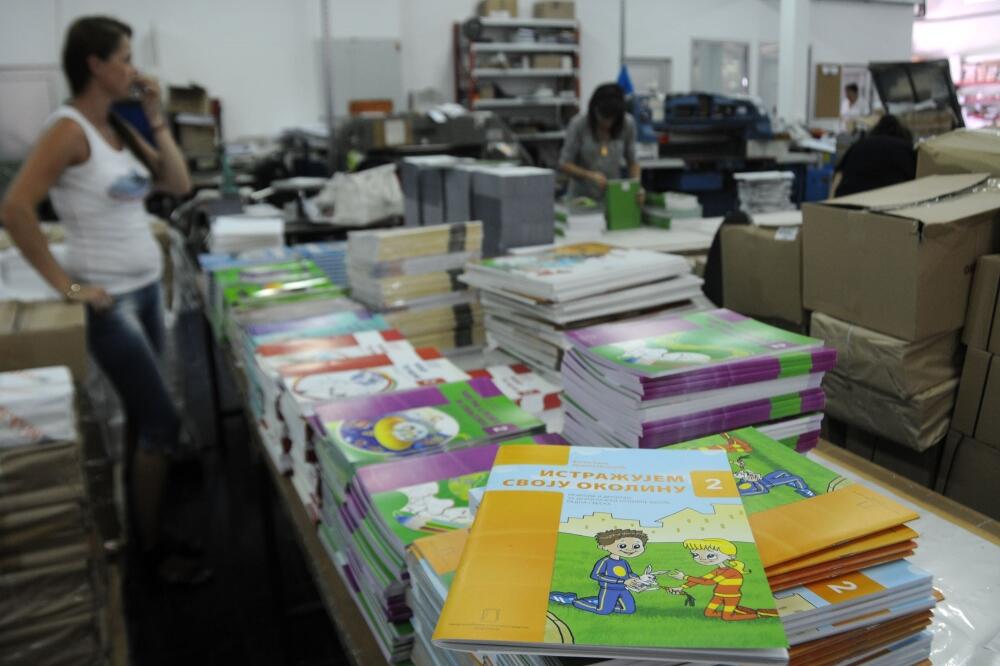I still remember it from the twilight days of SFRY: on the eve of each school year, from various (ours, it was said at the time) circles, there would be stories about school reading, suitable and unsuitable writers, who was kicked out, and who found themselves in the Literary Paradise of School Reading .
Even then, it seems to me, journalists, chasing after attractive headlines, knew that they were straying from the truth - if some contemporary writer "disappears" from the school readings, there are no headlines. The logic of the title calls for greatness - Njegoš, Andrić, Zmaj, Lalić, Desanko, Mažuranić, Meša... It's the same today: it's not easy to make out in the sea of information about mandatory reading. Njegoš, as far as I understand, was not removed from the reading list, it was only addressed to readers of a more appropriate age - high school students. Which is perfectly fine. The elementary students of Njegoš cannot experience it any other way than as a set of empty slogans, the ecstasy of a national-epic rhetoric that largely peaked in that hell of the nineties.
Perhaps, in the face of new media uproar, some things should be reminded. School reading, in principle, has a double role: on the one hand, it introduces young people to literature as such, revealing (through the age of appropriate readings) the meaning and possibilities, logic and eros of a literary text, and, on the other hand, it introduces young people to communication with the literary canon of a linguistic, national or cultural community. There are two important moments: someone, therefore, has to decide what are the appropriate texts for a certain age, and secondly: someone has to decide what the literary canon is in a community. This is actually where the trouble starts. Of course, these things never exist as an absolute consensus. There is room for "engineering" of the authorities, educational but also others... Or, popularly speaking, from a slightly different context, the question is always - "Who controls the controllers".
It is dangerous when the reading turns into national doping. Then its dimension, which should be the most important, is negated: literature (when it is) is always a science of universality.
When you need national doping, then you gather writers according to eligibility criteria, and the price of such foolishness is paid by generations of students. I really see no reason why Montenegrin primary school children should be deprived of Zmaj, Desanka, Ivana Brlić Mažuranić, Mark Twain, Astrid Lindgren... If we symbolically mark our world (only and only) as the space from Ulcinj to Bijelo Polje, we will lose the idea of the World somewhere. Of course, school reading is the place where elementary students get to know important writers of their language, but it is not good to lose sight of reality itself... All that is nice, but for (literary) Zeta to become (literary) Mississippi, only one little thing is missing - Mark Twain. That's why you shouldn't invent hot water. Again, instead of making a big noise about school reading and similar issues, it should be remembered that there are other readings - say, generational readings. It is, in fact, much more important. There are no school councils behind it, no scowling intellectuals with a national mission...
Example: in the seventh grade, it seems to me, the obligatory school reading was, for example, the novel Daleko je sunce, by Dobrica Ćosić. (I guess it's not there anymore?) Of course, none of us would have read it if it wasn't in the school textbook. It was then part of the literary canon of that community. But the generational reading was "The Catcher in the Rye", and we read it so devotedly, that we kept a copy under the bench and hung out with Holden, and in biology, physics or technical classes... No one forced us to read it, but, a good reputation had somehow reached one, whose recommendations were respected, and so on... I think that half of my class (seventh and second, Savo Pejanović Primary School) read Salinger's novel then.
I mean, I've always believed more in those readings that reach readers in just such a way, than in those behind which there is a "seal" of educational or any kind of authorities. School reading seemed to me like an "elephant graveyard" of literature.
Therefore, "tidying up" the reading material is always an ideological job, par excellence. There, literature is used for the "training" of offspring.
But also space for the disastrous partitocracy here: the idea of a different ratio of language learning in Cetinje and Pljevlja, will perhaps lead to different compulsory school reading in those two cities? Of course, this first of all says something about the strenuous need of Montenegrin politicians to arrange everything.
When so much has already been perverted in Montenegro, perhaps one more step forward should be made. Let's say, leave young readers to fend for themselves (probably they would do better in terms of aesthetics and cognition), and introduce compulsory reading for adults. With a special emphasis on politicians. Imagine how interesting and close it would be for them to read Kafka's "Transformation" first. This is where they would first recognize each other.
Bonus video:





